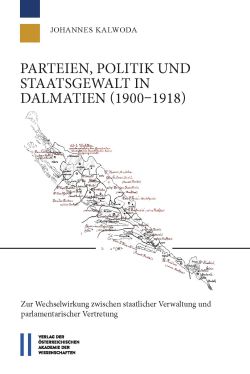Johannes KALWODA
ist Historiker in Wien und im Schuldienst tätig
|
 |
Exemplarische Tiefenbohrungen politischer Ereignisse in Dalmatien (1900–1918) bilden die Basis dieser profunden Arbeit, die das Agieren der österreichischen Staatsverwaltung erforscht. Die Reichsrats- und Landtagswahlen, die bosnische Annexionskrise 1908/09, der Sprachenausgleich von 1909, die politische Entwicklung vor und während Weltkrieg I, die Auflösung der Gemeindevertretungen 1914–1918 und die Einstellung der dalmatinischen Reichsratsabgeordneten während WK I stehen allesamt im Fokus der Analyse.
Die österreichische Staatsgewalt hat in Dalmatien nicht immer fehlerfrei agiert, wie zeitgenössisch-gedruckte Quellen belegen. Wagt man allerdings einen Perspektivwechsel und forscht anhand ungedruckter staatlicher Verwaltungsakten, kommt man in vielen Belangen zum Ergebnis, dass die österreichisch-politische Verwaltung in Dalmatien sehr wohl bemerkenswerte Arbeit geleistet hat. Sie war um Objektivität bemüht, obwohl oder weil die staatlich-politischen Verwaltungsorgane in Dalmatien und Wien auch Gesamtstaatsinteressen zu wahren hatten oder gesamtstaatlich dachten. Grundsätzlich supranational, wusste sie mit Krisen im Land umzugehen. Mehr noch: Sie war um Interessensausgleich zwischen Streitparteien bemüht, nahm Mediationsaufgaben wahr oder wehrte in WK I allzu große restriktive Wünsche der militärischen Verwaltung ab. Dass der Erfolg einer guten Verwaltung im Land wesentlich vom Geist der Statthalterei abhing, die sich als Scharnier zwischen den Interessen von Wien und Dalmatien verstand, wird überzeugend sichtbar.
Viele der in der Literatur bloß gestreiften Entwicklungen werden hier akribisch quellenmäßig belegt und dadurch redimensioniert oder politisch entideologisiert.
Veröffentlicht mit Unterstützung des Austrian Science Fund (FWF)

…
|





 Home
Home
 Print
Print
 References
References
 Share
Share